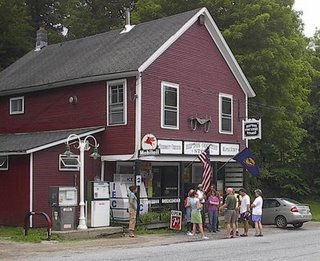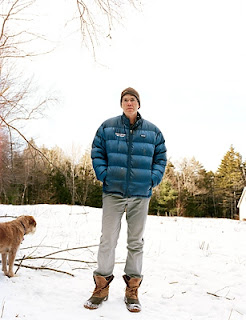Tuesday, March 13, 2012
Community school discussion
Don't forget to come to the Ripton school tonight. We're having a community discussion of the school's future!
Sunday, March 11, 2012
Our Green Mountain forests
A good article in the Burlington Free Press highlights how the Forest Service cares for Vermont's protected forests. It also focuses on Ripton's lands.
A visit to just one corner of the Green Mountain National Forest, along a dirt road called Natural Turnpike in Ripton, reveals the complex dance the National Forest Service does with the landscape’s ecology, the changing, fragile state of the wildlife and plants in the forests, and the often-conflicting goals of the people who love the forest so much there’s a danger they could love it to death.
The road originally was built in the 1960s for timbering, but now has vacation houses and a few year-round homes tucked into small yards at the edges of the forest. Logging trucks occasionally rumble by. Usually, in the winter, people come up the road to access snowmobile trails and smaller, separate trails for snowshoing and cross country skiing.
The snow cover was oddly thin in the forest in mid-February. Much of the Green Mountain National Forest is a working landscape, almost as much as a farm might be. The forest around Natural Turnpike Road shows wide-ranging signs of human activity. Despite the lack of snow, there was evidence of half-hearted attempts at snowmobiling and skiing. Footprints in the mud alongside the road, some leading off into the forest, meant hikers have been around. A low rumble off the far end of the road came from a logging operation....
A visit to just one corner of the Green Mountain National Forest, along a dirt road called Natural Turnpike in Ripton, reveals the complex dance the National Forest Service does with the landscape’s ecology, the changing, fragile state of the wildlife and plants in the forests, and the often-conflicting goals of the people who love the forest so much there’s a danger they could love it to death.
The road originally was built in the 1960s for timbering, but now has vacation houses and a few year-round homes tucked into small yards at the edges of the forest. Logging trucks occasionally rumble by. Usually, in the winter, people come up the road to access snowmobile trails and smaller, separate trails for snowshoing and cross country skiing.
The snow cover was oddly thin in the forest in mid-February. Much of the Green Mountain National Forest is a working landscape, almost as much as a farm might be. The forest around Natural Turnpike Road shows wide-ranging signs of human activity. Despite the lack of snow, there was evidence of half-hearted attempts at snowmobiling and skiing. Footprints in the mud alongside the road, some leading off into the forest, meant hikers have been around. A low rumble off the far end of the road came from a logging operation....
Tuesday, March 6, 2012
Riptonite in TIME
Ripton resident Bill McKibben receives a glowing profile from TIME magazine.
Bill McKibben misses winter. the 51-year-old environmental writer turned unlikely activist is marching through a frosting of snow outside his Vermont home, dodging the jabbing branches of spruce trees. McKibben has lived in and around the Adirondack and Green mountains since leaving New York City some two decades ago, and he remembers winters sunk “with a cold so deep, the trees would snap at night.” But not this year. Scientists are already predicting that this winter could be the warmest in recorded history in the Northeastern U.S. In its place–thanks in part to man-made climate change–is something different and likely more dangerous. As McKibben walks through the woods, on land originally owned by the poet Robert Frost, he recalls the damage inflicted on Vermont by Tropical Storm Irene, one of 12 record-breaking billion-dollar disasters that hit the U.S. last year. “The climate has already warmed 1 [Celsius], and if this is what 1 produces, more warming is going to be impossible to deal with,” he says. “We can’t let this happen. We won’t let this happen.”
Subscribe to:
Posts (Atom)


